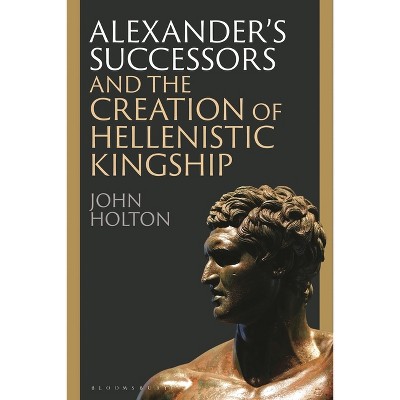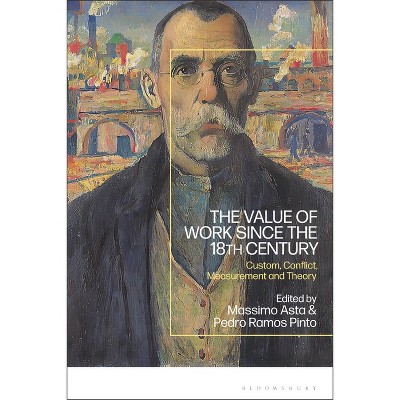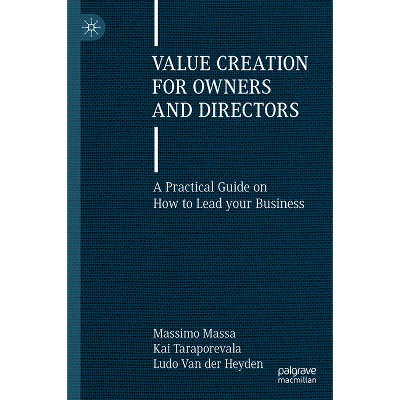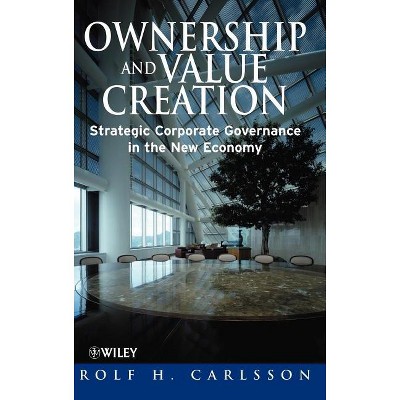$44.99 when purchased online
Target Online store #3991
About this item
Highlights
- John Heskett was a pioneering British design historian, with a particular interest in design and economics.Design and the Creation of Value' publishes for the first time his groundbreaking seminar on design and economic value.
- About the Author: John Heskett (1937-2014) was a prolific and pioneering design academic.
- 248 Pages
- Art, History & Criticism
Description
About the Book
This accessible text introduces design students to key economic theories and thinkers, and shows how these models can be used to understand the role of design in creating economic value in organisations and in new product development.Book Synopsis
John Heskett was a pioneering British design historian, with a particular interest in design and economics.Design and the Creation of Value' publishes for the first time his groundbreaking seminar on design and economic value. In remarkably clear and accessible prose Heskett explores the how the key traditions of economic thought conceive of how value is created. Critically teasing out the role of design in this process, Heskett shows how design's role in innovating and creating value creating value for organisations and products can be given a firm grounding in economic theory.
Featuring examples of businesses which have successfully responded to the value of design in their practice, as well as others who have failed because of their inability to understand value-creation, Heskett looks in detail at the relationship between producers, markets, products and consumers, using these instances to offer a both a strong critique of the limitations conventional economic thought and new model of the economic importance of design thinking in value creation.
Review Quotes
Clive Dilnot and Suzan Boztepe are two of the finest scholars in the design field. This judicious selection brings Heskett's always lively work to a new generation of readers - while gathering Heskett's work on economics and public policy for readers who already know the historian.
Ken Friedman, Chair Professor of Design Innovation Studies at Tongji University, China
Heskett provides us the most comprehensive set of ideas about how organizations can use design to create economic value. These essays are the best source for linking design theory with policies that organizations can adopt and act upon.
Patrick Whitney, Distinguished Professor at the Institute of Design, Illinois Institute of Technology, USA
We should care passionately about the relationship between design and economic value. If good design has no or little obvious economic value then we are doomed to live in a world where everything from the built environment in which we live to the smart phone in our hand will be created without thought to its beauty, functionality and impact on us as users. Fortunately that is not the case and we all know intuitively that good design has value. This book helps us to move beyond intuition and gives us the language to explore design in economic terms. In doing so it can help us to convince key decision-makers, whether in business or in public life, about this key and eternal relationship. Too often they seem programmed to forget!
Matthew Carmona, Professor of Planning and Urban Design at the Bartlett School of Planning, University College London, UK
About the Author
John Heskett (1937-2014) was a prolific and pioneering design academic. He worked as chair and professor of design at Hong Kong Polytechnic University, spent fifteen years as professor of design at the Illinois Institute of Technology in Chicago, and was also a visiting professor at universities in Denmark, Turkey, Chile, Germany, Japan, and Finland.
He authored many classic design texts, including 'Industrial Design' (1980), 'German Design 1870-1918' (1987), and 'Philips: A Study in Corporate Design' (1989). A large part of his research focused on business applications for design. He was especially interested in exploring how design creates economic value, and the role of this in the design policy of governments and corporations. Clive Dilnot is Professor of Design Studies at the School of Art and Design History and Theory at Parsons, New York. He has taught in Hong Kong and at Harvard University, and served as director of design initiatives at the Art Institute in Chicago. He has written extensively on the history and theory of design, and his most recent work is on design ethics. Suzan Boztepe is Senior Lecturer at Malmö University, Sweden. Her research focuses on how design creates user and economic value, drives organizational and societal transformation, and catalyzes innovation. She has published widely on strategic design and human-centered methodologies. She completed her doctorate under John Heskett at the Institute of Design, Illinois Institute of Technology, where he originally taught the groundbreaking seminar on design and economic value on which this book is based.Dimensions (Overall): 9.1 Inches (H) x 6.1 Inches (W) x .6 Inches (D)
Weight: .85 Pounds
Suggested Age: 22 Years and Up
Number of Pages: 248
Genre: Art
Sub-Genre: History & Criticism
Publisher: Bloomsbury Academic
Format: Paperback
Author: John Heskett
Language: English
Street Date: February 9, 2017
TCIN: 1005551100
UPC: 9781474274296
Item Number (DPCI): 247-38-6855
Origin: Made in the USA or Imported
Shipping details
Estimated ship dimensions: 0.6 inches length x 6.1 inches width x 9.1 inches height
Estimated ship weight: 0.85 pounds
We regret that this item cannot be shipped to PO Boxes.
This item cannot be shipped to the following locations: American Samoa (see also separate entry under AS), Guam (see also separate entry under GU), Northern Mariana Islands, Puerto Rico (see also separate entry under PR), United States Minor Outlying Islands, Virgin Islands, U.S., APO/FPO
Return details
This item can be returned to any Target store or Target.com.
This item must be returned within 90 days of the date it was purchased in store, shipped, delivered by a Shipt shopper, or made ready for pickup.
See the return policy for complete information.












